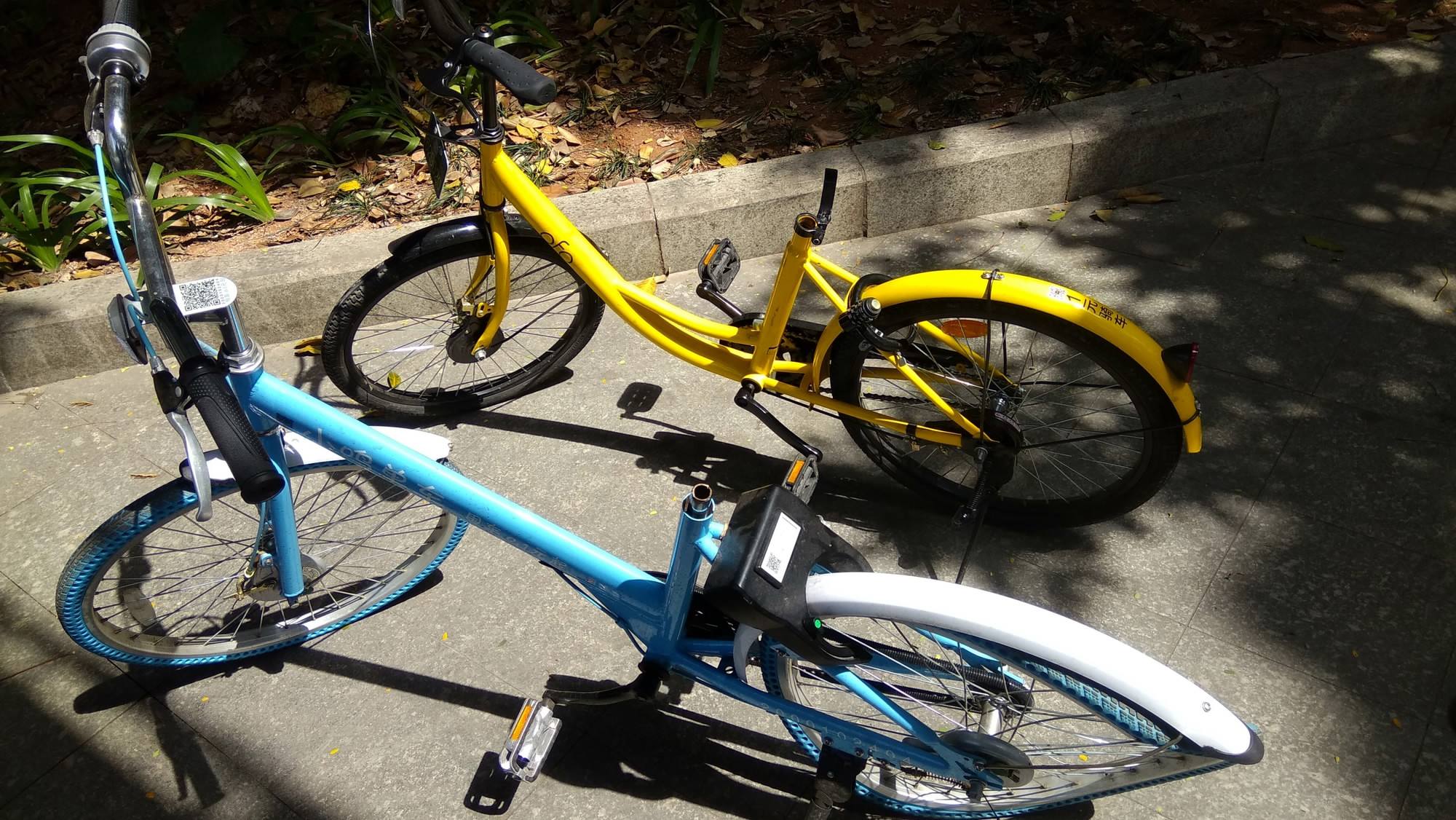The influx of bike-sharing schemes in China has brought many benefits, but hasn't been without problems.
The convenience of picking up and parking a bike at will has been accompanied by unsightly piles of bikes on street corners. And the ease of unlocking via a smartphone app has been matched by the frustration of a bike which just won’t release.
It has also provoked ethical questions - the bikes are privately-owned, temporarily rented, but used and stored in public areas. Now, two women in Beijing have been arrested for placing locks on a pair of shared bicycles to ensure only they could use them.
BIKE-SHARING, NOT BIKE-HOGGING

CFP Photo
The arrested pair are female nurses. They acknowledged that the bikes they locked belonged to ofo, a leading bike-sharing company. They will be detained for five days.
"They were so regretful,” said a doctor working in the same hospital who saw the story unfold. “They did not know it was illegal.”

CFP Photo
It should be a reminder to many that the bike-sharing industry operates under clear rules, contravening which may lead to fines and detention.
Regulations state that shared bikes should be placed appropriately without obstructing roads or pedestrian streets, or be left at positions that could endanger public safety. And to the very concept of shared bikes, they must never be taken to somewhere unreachable to others.

CFP Photo
Lawyer Zhang Xinnian stated that by locking up the shared bikes, the nurses infringed the supplier's property rights. "Many find little risk in riding the shared bikes home, but in doing so, they are keeping a public resource which could be used by others, and it is against the law," added Zhang.

CFP Photo
The two arrested in this case might have lacked knowledge of either the concept of the sharing-economy or relevant laws and regulations, which reminds us that laws and understanding of them can be unclear in fast-developing industries.
SHARED BIKE SUPPLIERS CHALLENGED BY MULTIPLE PROPERTY DAMAGE CASES

CFP Photo
Keeping public availablility for private use is not the only ethical and legal concern that the bike-sharing industry is facing. The nature of the “sharing” concept requires honesty and sincerity from both sides. When it involves too many users to monitor, it becomes both a moral test to stakeholders and a rationale challenge to the mechanism.

CFP Photo
There have been cases reported of shared bikes being damaged, which has become a pressing concern to the oeprators. With either QR code or coded lock activated, suppliers have found their bikes deadlocked, abandoned, left piled-up on the ground or damaged with parts taken.
The operators lend out bikes at a relatively low cost. But the handful of cases reported have shed light upon the loopholes at public administration level that have given way to public source abusers.

CFP Photo

CFP Photo
In an attempt to control public source abuses, eastern China’s Jinan, Shandong Province has announced a no tolerance policy on acts like damaging, abandoning or stealing shared bikes. To those who violate the policy, the Public Security Administrative Punishments Law - and penal law if necessary in some extreme cases - will be strictly enforced.
The Public Security Administrative Punishment Law covers major interactions in the bike-sharing business, but further regulations should be expected to help the industry perform better in future.









